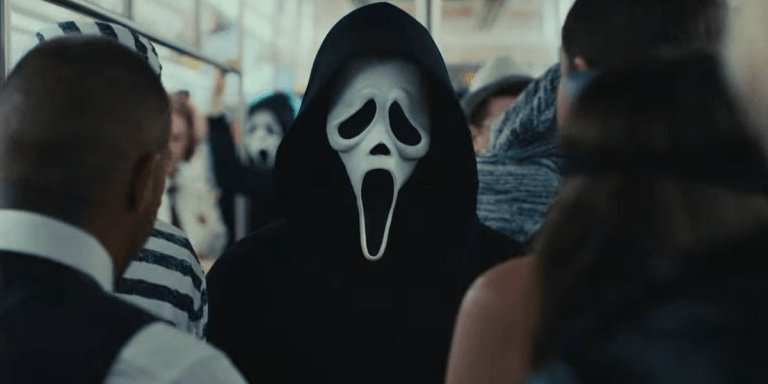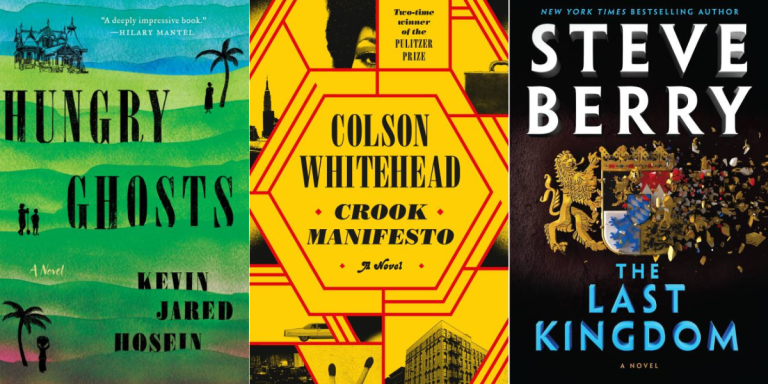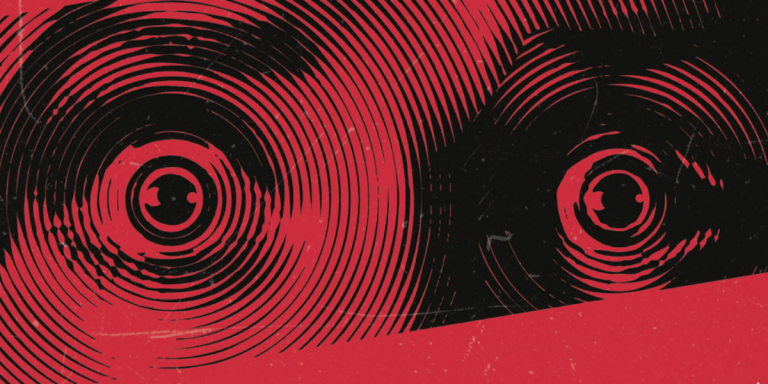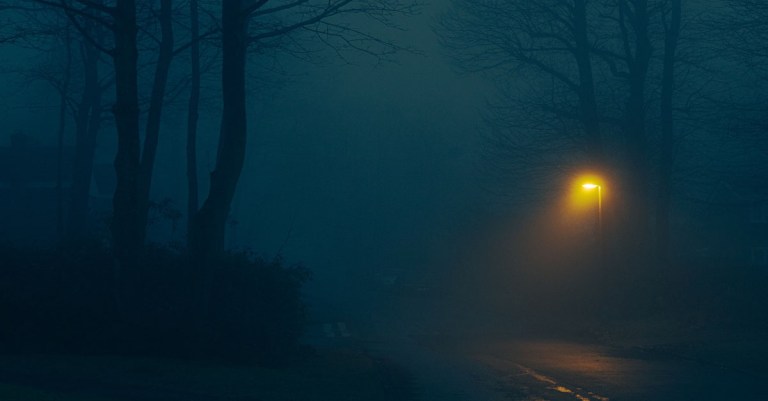Read the Expert: The Only Survivors by Megan Miranda
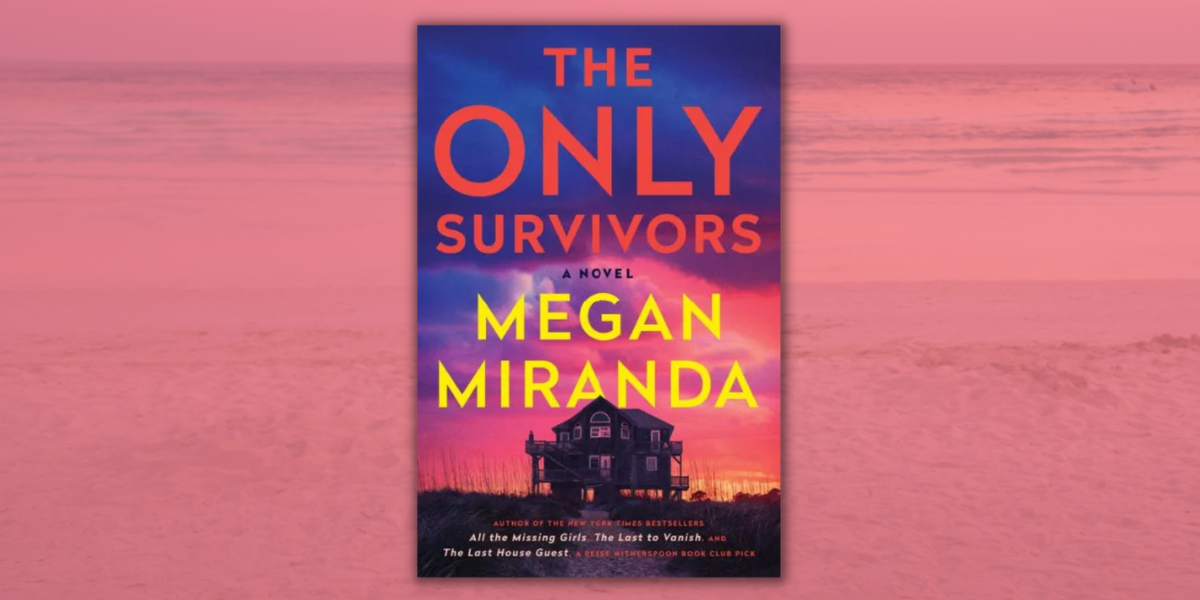 PROLOGUE
PROLOGUE
There were things I had done to avoid this reunion.
I’d made a list. Made a plan. Justified it by reminding myself that these were not really my friends, and ten years was long enough.
This yearly trip wasn’t helping anyone. This promise. We had been too young when we’d agreed to come together for the anniversary, as a way to keep one another safe. It had been a misguided impulse, an overreaction. A panicked grasp for control, when we all surely knew better by then.
I’d begun the process of disentangling myself six months earlier, in the hope of becoming invisible, unreachable. Three simple steps, seen through to the end:
I’d changed my number when I switched carriers, transferring most of my contacts, while deleting those I’d hoped to leave behind. A clean slate.
And when the group email from Amaya arrived in January, I marked it as junk, deleted it immediately. Unopened, unread, so I could claim ignorance. Though the details bolded in the subject line were already seared in my mind: May 7th—Be there!
Instead, I’d planned to stay at Russ’s for the weekend, the final step of evasion. I needed to move forward. I was twenty-eight, with a steady job and a semi-serious boyfriend who cooked breakfast on Sundays and owned reasonably decent sheets.
But on Sunday morning, my phone chimed as I was finishing up my omelet and Russ was at the counter, back turned, refilling his coffee. There was a flash of light on the display of my cell, faceup on the table. A North Carolina number not in my contacts, a message in all caps: DID YOU HEAR?
My fork hovered over the plate.
“Who’s that?” Russ asked as he sat back down across from me, hands circling the mug. He must’ve seen it in my expression, the blood draining, my shoulders tightening.
It had to be Amaya. She was the one who reached out with the details each year. She cared for us deeply, as a collective. She cared about everything deeply.
“Just spam,” I said, dropping the fork to the plate, pressing my hands to my knees under the table, to keep them still. I fought the urge to turn the phone facedown.
It didn’t have to be a lie. It could’ve been a wrong number, instead of Amaya tracking me down, making sure I knew that today was the arrival date. As if she knew I was sitting at my boyfriend’s kitchen table hundreds of miles away at this very moment, with no intention of hitting the road.
But just in case, when I thought Russ wasn’t watching, I would delete the message. Block the number. As if it had never happened. We took the plates to the counter, and I waited for him to turn
his back, for the water to run, before picking up my cell.
But by then a second message had come through. A link to an
article. No, not an article—an obituary.
Ian Tayler, twenty-eight
I sank into the nearest chair. Read the notice of his unexpected death, words swimming.
Beloved son, brother, uncle, and friend. Donations to be made to the Ridgefield Recovery Center, in lieu of flowers.
They had used an older picture—when his face was boyishly full, blond hair just long enough to catch a breeze, tan skin and brown eyes and a smile I wasn’t sure I’d seen in over a decade. So different from the last time we’d been together, one year ago, at our meeting place in the Outer Banks.
His face had been gaunter then, his hair cropped short. He seemed beset by a fidget he couldn’t shake. Until next year, he’d said, one arm hooked awkwardly around my neck in half a hug.
We didn’t like to stand too close anymore, because all I could picture as we lingered in those moments was the same thing I was seeing now: a flash of his brown eyes, large and wide, mouth open in a frozen scream as he faced the river—
I pressed my fist to my teeth, let out one single gasp, hoped it was muffled under the sound of running water.
Then, a second shock: the obituary was three months old, and I hadn’t known.
Out of contact. Unreachable.
Shouldn’t I have felt it somehow? That bond, connecting us all across time and distance? Ian, I’m sorry—
I left the room. Left Russ at the sink. Made a new plan: stop by home for the right clothes; email work with a family emergency; start driving.
It had been a mistake to believe I could just disappear. That I could forget any of this—the memories, the pact. That I could leave it—and them—behind for good.
On my way, I responded, my hands still trembling.
I shouldn’t have tried to fight it. There was a gravity to this ritual week, to the past, to them. The only survivors. There were nine of us, at the start.
Their names were a drumbeat in my head, our lives perpetually bound. Amaya, Clara, Grace. Oliver, Joshua, Ian. Hollis and Brody. Me. A miracle, it seemed, that there were any of us at all.
In truth, they represented the facet of my life I wanted most to forget. An exorcism of my past that I couldn’t quite complete. But, like Amaya, I did care, and deeply so. Because we had all made that promise: Then and always, we would see each other through this week. Keep our borders close, keep our secrets closer. One moment, pulling the rest of us back together, year after year.
Only now we were seven.
CHAPTER 1
Our house, like most things, came down to luck.
Luck that the property had managed to withstand two hurricanes in the last decade, perched on a set of pilings at
the edge of the dunes, protected only by aluminum storm shutters and cedar shake siding that had faded over the years to a weather-worn gray.
Luck that there was space for all of us within its five bedrooms, with balconies that connected via wraparound porches and precarious wooden steps over three stories.
Luck that the beachfront rental belonged to Oliver’s family, and, that first year, after Clara’s funeral, when we were panicked and desperate and made that pact, Oliver had said: I know a place.
The house was tucked away from the activity of town, at the far edge of a dead-end road. It was close enough to see the neighbors down the stretch of sand—especially in the dark, with the windows lit up, beacons in the night—but still private enough to feel removed. A peace of mind in both regards.
It was the perfect haven for us, the lucky ones: survivors of the crash, and then of the raging river, the unrelenting storm.
Oliver called it The Shallows, a name that felt like a promise. A place of safety, and retreat, isolated from the rest of the world, and surrounded on all sides by the endless deep. We came here the first time out of convenience, but we kept coming back because returning here year after year removed the necessity of decisions, the burden of plans. And because it was hundreds of miles from the site of the accident, protected from the undertow of the past.
•••
I drove five hours to the coast, and then over a series of bridges to the southern barrier islands, passing the time in a state of steady dread, trying to distract myself with a variety of podcasts I couldn’t focus on, before finally giving over to the silence.
The turnoff appeared before I was ready for it, a cluster of uncoordinated mailboxes before a faded street sign, bent from the wind and sun-scorched white at the center.
The house was at the end of the unpaved road, the parking area out front a semicircle of rocks and weeds, with a fine coating of sand that I’d felt under the wheels for the last ten miles. On the drive in, the land progressively narrowed between the ocean and the sound, and the dunes crept closer to the road, sand swirling across the pavement in gusty spirals. From a distance, the sand formed a sort of haze, suspended like fog in the atmosphere, encroaching from the sea. Without regular maintenance, I imagined, all of this would be swept away; every sign of humanity wiped clean, in a steady assault of nature.
The geography was constantly shifting out here. In the marshlands, water seeped onto the grassy edges of the road. After a storm, islands could have become peninsulas, or vice versa. And the dunes were always moving, growing—like everything in sight was waiting to be consumed.
But somehow this house remained.
There were four cars in a row out front, the last being Amaya’s rust-colored sedan, with a collection of decals lining the rear windshield. It was already late afternoon—I assumed I was the last to arrive. Not everyone lived within driving distance anymore.
I pulled into the spot beside a familiar dark Honda, jarred by the car seat visible in the back, by how much could change in a year.
When I stepped outside, the air tasted like salt, like something from my nightmares. Sometimes, alone, in the dark of night, I’d wake from a dream still tasting the river, storm water, a gritty soil in the back of my throat. But other times I’d wake to the scent of saltwater air instead, like I wasn’t sure which was the nightmare—then or now.
I breathed slowly, staring up at the house. The raised porch, multiple gables, windows reflecting the sun and sky. The structure was dated but objectively beautiful, I knew, in the way it rose unobtrusively from the landscape, like driftwood from the beach, positioned with care to welcome the forces of nature, instead of fighting against them.
A set of wide wooden steps led up to the front door, where we’d taken that single photo our first year—the eight of us crammed together, sitting shoulder to shoulder, knees pressing into the body in front of us, like proof: We’re still here.
I straightened my spine, steeling myself. On a list of things that could set my nerves on edge, this would be near the top. Not quite as high as driving on curving dark roads, or being lost. But arriving late to this house, with this group: high.
They weren’t bad people. They were just bad people for me.
A shadow passed the living room window, and I imagined them all together, sitting around that taupe sectional couch, waiting for me.
And then, before I could stop the image: I saw them running, funneling out the front door, a massive wave rising up behind the house, sky darkening, shadow expanding. The chaos of panic, and wondering who I would save first—
It was a habit I couldn’t shake, the question always on my mind. In a room full of people, a bus full of strangers: Who do you save? A thought experiment playing out in real time. A horror interlude in the monotony of my daily life.
I grabbed my luggage, slammed the trunk of my car. The first day was always the hardest.
•••
The front door squeaked as I pushed it open, hinges rusted from the saltwater air and time. One step inside, and my memory sharpened: whitewashed, wood-paneled walls and an open floor plan, so I could see straight through the house, entrance to exit—first the living room, then the long table of the dining room and the kitchen beyond, the areas partitioned by furniture alone, and finally the back windows and the sliding door to the deck. But when I closed the front door behind me—loud enough to draw attention, to make sure they knew I was here—Brody was the only one I saw.
“There she is,” he said, standing from the fridge, as if there were someone else in the room with us. He twisted the top off his beer while he walked halfway across the space, dimple forming as he smiled. He had the same shaggy haircut as always, a brown mop he was constantly pushing back from his face. He’d been the athlete of our group, one half of class-couple Brody and Hollis, and he still carried the confidence of someone used to being widely known in school.
“Here,” I said, like I was a student calling out her attendance, and he laughed. From his greeting, it sounded like they’d been waiting. Unlike Brody, I was more accustomed to being overlooked, so I had gotten into the habit of going out of my way to make my presence known.
I set my luggage beside the couch and took him in. Every year, our first greetings were both familiar and jarring. He dressed the same—casually, in gym shorts and a T-shirt and slip-on sandals. But there was a car seat in the back of his car; he was a dad. An entire identity that had changed in a moment.
“The drive okay?” Brody appeared at ease no matter where he was or whom he was with. He picked up a conversation with me as if no time had passed since we’d seen each other last.
“Yes, but sorry I’m late.”
He took a long drink, shook his head, brushed a rogue wave of hair from his eyes. “You’re not even the last one.” Then he nodded toward the back of the kitchen. “We’re outside, after you get settled.”
“I’ll be out in a few,” I said, grateful for the time to orient myself first.
Reasons to save Brody: he was a new father; people would miss him.
He smiled, standing at the back door, taking me in. I was wearing the first jeans and T-shirt I had managed to pull from my drawer, and pieces of dark blond hair had fallen from my haphazard ponytail during the drive. I felt self-conscious, exposed. “You look good, Cass,” he said, as if he could read my insecurity. He left the sliding door ajar as he exited, in an offering, or an oversight.
In the silence that followed, I could hear the waves, the cry of a seagull. Out back, there was a wooden walkway through the dunes, patchy seagrass mixed in with the sand, and then—water, sea breeze, infinity.
Grace always said there was something healing about the ocean, but then, she was someone who believed in the mind’s ability to right itself, and in nature’s ability to do the same. She worked as a trauma therapist now, which I thought was reason enough to save her, even if she saw the rest of us as works in progress. Grace must’ve managed to convince herself that the enemy was not water but the lack of lights on a winding mountain road. A deer, caught in the blinding glare of headlights; a series of bad decisions in an approaching storm.
But I found nothing healing about this place.
Maybe it was the bridges I had to take to get here, cutting me off from the rest of my life, cutting us all off together. The single road in, and the way the light shimmered off the pavement, like water. The sea visible on both sides, and this sensation that something was closing in.
Maybe it would feel this way no matter where we were, as long as we were together. Maybe everything we touched together turned to ash.
•••
My room—the room I had stayed in since that very first year—was one of three on the second floor. The door was open at the end of the hall, welcoming me. Inside, there were two queen beds with matching aqua=colored comforters, dark wooden furniture, and an antique, out-of-place mirror. Amaya’s luggage was at the foot of the bed that had always been hers, nearer the entrance.
I almost didn’t see her. It was the breeze I noticed first: the glass doors to the balcony cracked open, and the silhouette through the gauzy curtains—a person facing the dunes, the ocean.
“Hey,” I said quietly, swinging the doors fully open. But I made her jump all the same. Her curly brown hair was up in her signature high ponytail, and it appeared shorter than the year before. There were hollows under her hazel eyes when she turned to face me, as if she’d traveled through the night, or been haunted by the drive in, same as me.
“Oh,” she said, like she was surprised to see me here at all. She seemed even smaller than I remembered, drowning in loose joggers and an oversize sweatshirt, hands tucked inside the sleeves. The weather in the Outer Banks in early May was unpredictable. It could be sixty degrees with a crisp ocean breeze, or it could be closer to eighty with a strong sun and thick with humidity.
“Didn’t mean to scare you,” I said, dropping my luggage beside the bed closer to the window, in the room we always shared. Creatures of habit, all of us. The comfort of routines lingered from our school years, assigned positions and predicted places. The rooms were almost dormitory-style, with identical layouts: two beds and similar furniture in each. Only the color scheme varied, so we called the rooms by their colors: Grace and Hollis in the yellow
Excerpted from The Only Survivors: A Novel by Megan Miranda. Excerpted with the permission of Scribner, a Division of Simon & Schuster, Inc. Copyright © 2023 by Megan Miranda.
Discover the Book
egan Miranda is the New York Times bestselling author of All the Missing Girls; The Perfect Stranger; The Last House Guest, a Reese Witherspoon Book Club Pick; The Girl from Widow Hills; Such a Quiet Place; and The Last to Vanish. She has also written several books for young adults. She grew up in New Jersey, graduated from MIT, and lives in North Carolina with her husband and two children. Follow @MeganLMiranda on Twitter and Instagram, @AuthorMeganMiranda on Facebook, and visit MeganMiranda.com
By clicking 'Sign Up,' I acknowledge that I have read and agree to Hachette Book Group’s Privacy Policy and Terms of Use
What to Read Next
